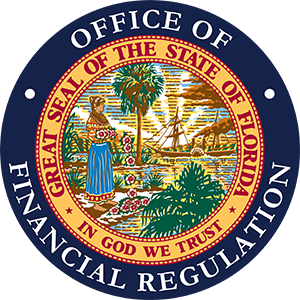Resources for Obtaining a Business Loan
This information is provided for general informational purposes only and should not be relied upon as legal interpretations by the Office, shall not supersede any part of the Florida Statutes or Florida Administrative Code, and does not constitute legal or financial advice. The Office does not endorse any third-party or guarantee the accuracy of any third-party information linked to or referenced herein.
A business loan is a type of commercial financing that allows qualified businesses to borrow money from traditional banks, online lenders, credit unions, and other lending institutions. Be sure to research the terms of each lender and the loan products offered to determine the most appropriate option for your business.
Business loans can be used to finance costs, including:
- Commercial real estate purchases
- Equipment purchases
- Inventory purchases
- Remodeling costs
- Business franchising
- Marketing and advertising
- Refinancing
- Cashflow for operational expenses
- Business expansion costs
- Business acquisitions
Business loans can be utilized at many stages of a company’s growth and can be a means of financing many costs, including startup expenses and growth or expansion expenses.
Businesses can receive a business loan as a lump sum, single payment or as a line of credit that can be accessed until the credit limit is reached. In exchange for the business loan, a company agrees to repay the money borrowed plus interest and fees over a predetermined period.
Business loans are either secured or unsecured. Secured loans require collateral, an asset the lender can take possession of if the business fails to repay the loan. Unsecured loans do not require collateral, and borrowers typically sign a guarantee accepting personal liability if the business does not repay its debt.
- Credit score
- Traditional U.S. Small Business Administration (SBA) and bank loans require a minimum credit score of 680.
- Business lines of credit and equipment financing typically require a minimum credit score of 630.
- Typically, lenders will check your personal and business credit score.
- Annual revenue
- Lenders review a business’s annual net operating income to determine eligibility for a business loan. They may also consider the personal income of the business owners.
- Years in business
- Lenders usually require at least two to three years of business operation. However, businesses that have been operational for six months can be eligible for some types of startup business loans.
- Debt
- Lenders review businesses’ annual debt to determine eligibility for a business loan. They may also consider the personal debt of the business owners.
- Financial accounting statements and balance sheets
- Bank account statements
- Federal employee identification number (FEIN)
- Personal and business tax returns
- Business licenses and permits
- Proof of Insurance
- Business plan and management structure
- Business registration documents and corporate filings.
- Driver’s license
- Commercial lease agreements
- Debt obligations/accounts payable
- Proof of collateral
